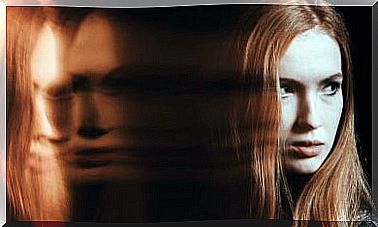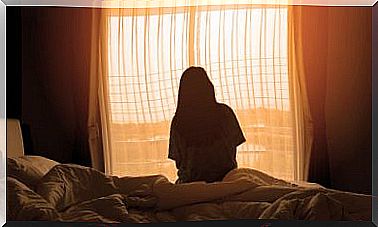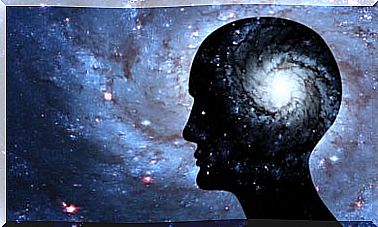The Nocturnal Eating Syndrome
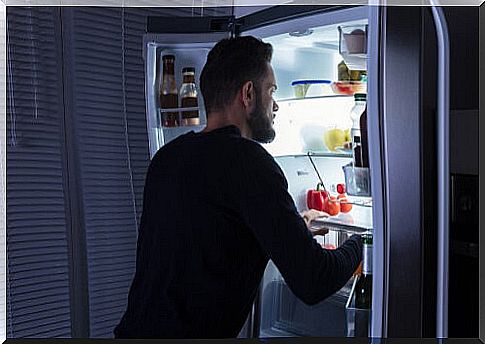
To understand ourselves, we can consider the nocturnal eating syndrome within sleep disorders or eating disorders, depending on the state of consciousness that the person has during the binge eating episode. In any case, it is a problem whereby, during the night and after dinner, the person gets up and ingests large amounts of food without control, with a preference for hypercaloric foods rich in carbohydrates.
It is estimated that it is a disorder that affects 1.5% (Germany, 2014) and that has serious consequences for health (. That is why in this publication we will talk about what nocturnal eating syndrome is and how it manifests , why this problem occurs, what are its causes and how is its treatment, because although it is a rare and somewhat unknown problem, it deserves our full attention.
Night eating syndrome: what is it and what symptoms does it have
The nocturnal eating syndrome was identified by Dr. Albert Stunkard in 1955 and is currently considered a sleep disorder and not an eating disorder. The Mental Illness Classification Manual (DSM-5) classifies it as a non-REM sleep arousal disorder or as an unspecified eating disorder depending on the individual’s state of consciousness during the eating episode. We will go through these two cases below.
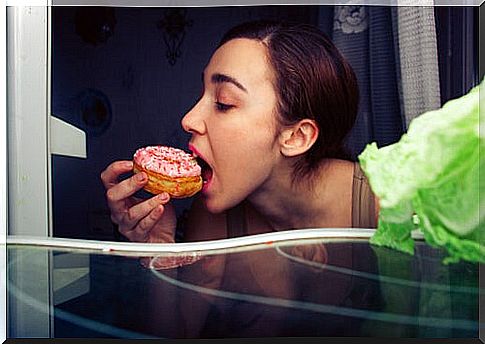
When ingestion occurs during sleep, and the person is not aware of it, we speak of nocturnal eating syndrome as a subtype of sleepwalking: it occurs in phase IV of sleep characterized by slow waves and very deep sleep. What happens is that the person gets up and eats compulsively and without realizing it, since they are not conscious even though they seem awake and can open the refrigerator, chew and swallow. Thus, as occurs in sleepwalking, there is no awareness of the acts and nothing is remembered of what has been done the next morning.
On the other hand, when we talk about nocturnal eating in a period of time in which the person is aware at all times that they are eating, this episode generating a memory, we are talking about other unspecified eating disorders according to DSM-5 and It is called “Nocturnal Food Ingestion Syndrome.”
In this case, compulsive eating also occurs, but there is a certain voluntariness in this behavior and what has been done is remembered. While when nighttime eating occurs with sleep disorders, none of this is observed, simply a compulsive and nocturnal eating pattern without being conscious and “awake” due to the sleep phase in which this phenomenon occurs.
What are the symptoms of nocturnal eating syndrome?
If nighttime eating occurs as an eating disorder, it is easy to diagnose because frequent bouts of binge eating are observed upon waking up or before sleeping. That is, it can be observed in the person as if it were an addiction to food: even if they do not want to eat and even the person maintains the purpose of losing weight, the binge episode occurs. Although it is something difficult to admit and recognize, it is an observable behavior because the person is conscious while eating at night in an uncontrolled way.
However, if nighttime eating occurs as a sleep disorder, the symptoms can be very difficult to identify. The most common way of detecting nocturnal eating syndrome as a sleep disorder is that the person is found eating “asleep” or because they begin to gain weight without knowing why ; In addition, it is observed that overnight food disappears from the refrigerator and no one remembers having eaten it. But since it is a problem that occurs in the deep phase of sleep and waking up in this phase is very difficult, it is more complicated for the same subject who has the disorder to be able to realize what is happening.
In summary, nocturnal eating syndrome can be an eating disorder or it can be a sleep disorder (it is a subtype of sleepwalking). In all cases it is an exaggerated and compulsive eating pattern that occurs at night, after dinner when the person has already eaten and has satiated, ruling out other psychological or psychiatric problems.
Why does this problem occur and what are the causes?
In the case of binge eating as an eating disorder, the problem occurs because food is an escape route from anxiety and depression. Eating becomes a strategy for coping with discomfort and problems; it develops as if it were an addiction to food and that is why, in the evening meal, the person feels an urge to eat food and nothing calms them down until they eat.
On the other hand, when food intake occurs during sleep, we are facing a syndrome that occurs because there is a “failure” in awakening, the person wakes up when they are not ready to do so and then their motor system is activated (from voluntary movement) and “automatisms” or well-learned behaviors such as walking, talking and eating are put into operation. For this reason, most people who eat at night are not aware of their behavior and may wake up while eating without understanding what they are doing and how they got there.
In all cases, the nocturnal eating syndrome is more common in people who are already obese and is usually related to hormonal imbalances (melatonin and stress hormones) and neurotransmitters, such as serotonin. For this reason, different scientific studies explain how nighttime eating can be successfully treated with drugs such as selective serotonin reuptake inhibitors (SSRIs), administration of melatonin (sleep hormone) and with medication that seeks to reduce the response to stress (Zapp, Fischer, & Deuschle, 2017).
At a general level, imbalances in sleep and circadian rhythm often lead to nocturnal eating. Although the causes of this disorder are multiple and little known, today it is assumed that factors such as anxiety, stress, obesity and circadian imbalances are the most frequent causes. Coping strategies focused on emotion and not on the problem are also related to binge eating syndrome, and psychological intervention must focus on these.
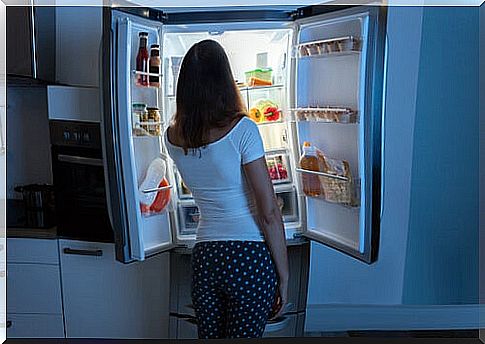
Treatment of nocturnal eating syndrome
The intervention on this disorder is multidisciplinary, nutritionists act to help the person lose weight, psychiatrists to guide the necessary medication and psychologists for the behavioral, emotional and cognitive management of the patient and his problem. Keep in mind that it is not a disorder that is only physical and with only one consequence, such as weight gain. Rather, we find people who experience high levels of anxiety and depressive symptoms that need psychological treatment.
On the other hand, there are a series of behavioral measures such as closing the refrigerator under a key or padlock, placing systems that help the person to wake up if they get up, preventing them from leaving the room, among others. Likewise, if compulsive eating occurs as an eating disorder, it is necessary to carry out psychological therapy for insomnia: by preventing the person from eating before sleeping, problems falling asleep appear. In all cases of nocturnal eating, a series of changes have to be made on the context that increases the cost of access to food.
